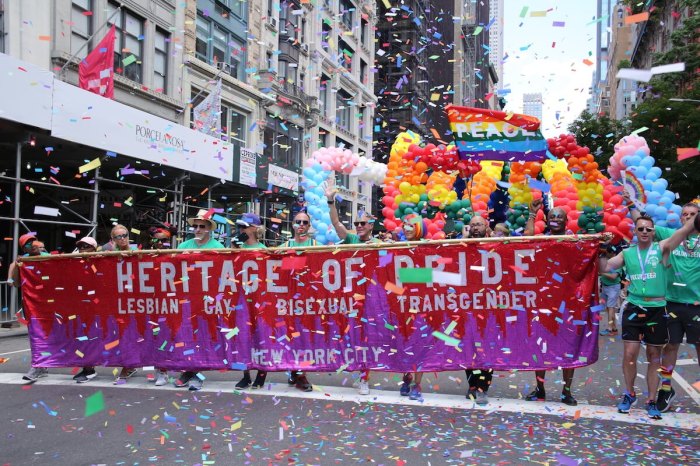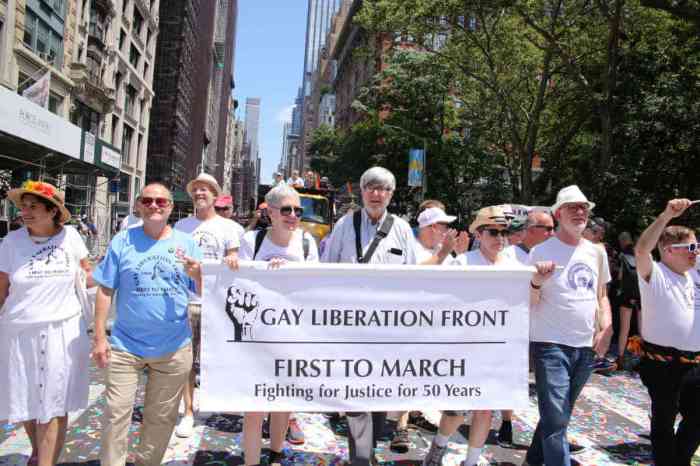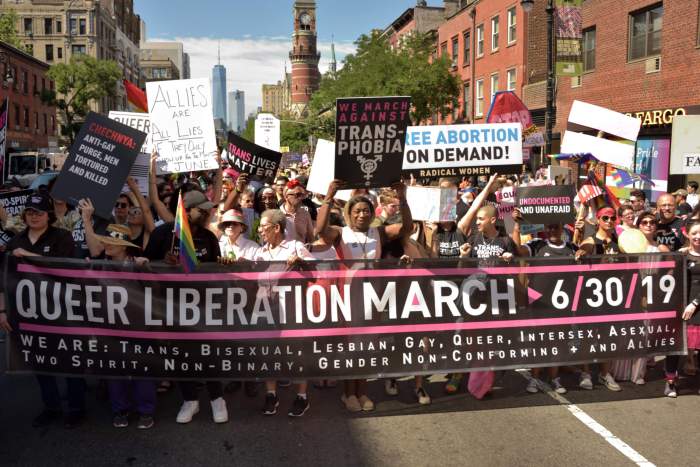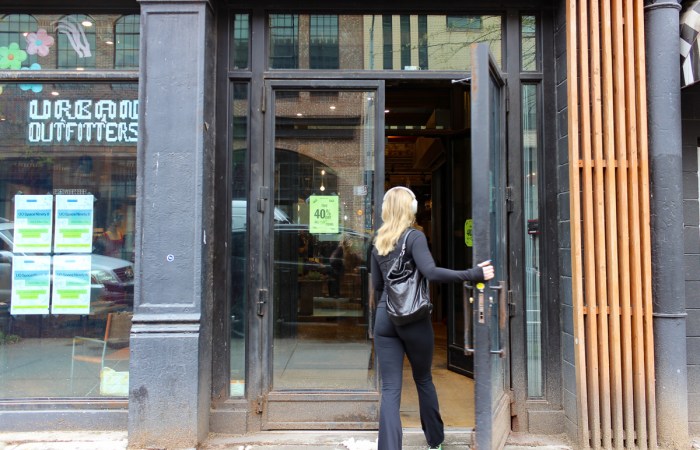Building a coalition, like building a community, is about addition, not subtraction. It’s about multiplying, not dividing.
I support the Queer Liberation March — planned under the auspices of the Reclaim Pride Coalition and scheduled for 9:30 a.m. on Pride Sunday — not because it is the alternative to the traditional LGBTQ Pride Parade produced by Heritage of Pride/ NYC Pride.
I support the Queer Liberation March because at this moment in our history — as we commemorate the 50th anniversary of Stonewall, an event where the LGBTQ community said in no uncertain terms, “Enough is enough,” and as we look toward a presidential election next year that this nation and our community cannot afford to lose — it is absolutely critical that we demonstrate that we take politics and our civic responsibilities dead serious.
The lead-up to our community having two different marches on the same day to mark Pride has been fraught with tension, acrimony, and division. For years, as the annual parade became bigger and bigger and Pride grew more commercially attractive to American business, complaints mounted steadily about the corporatization of the event. These complaints have emerged at Prides everywhere around the nation, and they are both stylistic and substantive.
Financial institutions, airlines, and retailers mounting floats accompanied by identically T-shirted contingents of marchers don’t necessarily make for the most compelling parade visuals — and the effect often doesn’t seem very queer. More importantly, the corporate presence often means Pride crowds are cheering for businesses whose interests on a range of matters are at odds with the community’s broadly progressive agenda on issues such as economic inequality, criminal justice reform, gun violence, and climate sustainability.
Those concerns become exacerbated when the community learns that corporate sponsors can buy positions in the parade in order to avoid the hours-long wait to step off while also getting their message into the event’s three-hour broadcast window.
All that said, there is no denying that the annual Pride Parade is a genuine crowd-pleaser, easily drawing millions of spectators. I have little doubt but that for many LGBTQ people it is the biggest and most personally resonant queer celebration in which they participate in any given year. And putting on a party like that is expensive.
Gay City News has run stories where community members and activists have raised serious questions — that deserve responses — about decisions made by the essentially all-volunteer Heritage of Pride staff. But whatever the right or wrong of any specific decision HOP has made over the years, the undeniable fact is that to stage an event on the scale of the annual Pride Parade is inevitably going to require significant corporate support.
It also bears remembering that for all the prominence corporations have in the parade most of the contingents are smaller, community-based groups — from colleges, high schools, religious bodies, ethnic affinity groups, activist organizations, service providers, and advocacy non-profits. Every year, the parade provides each of those groups, larger and smaller, the opportunity to put their message out to an enormous audience. That has to make a difference for them. And year after year, I have witnessed the jubilation and enthusiasm that many of those marchers make manifest, no matter how many hours they stood on a side street waiting to step off.
Among the many thousands of committed activists, advocates, and community leaders who will once again this year march in the big parade, I would not for a moment suggest that their fidelity to our community’s cause is any less true than that of anyone who will join the Queer Liberation March.
We will accomplish nothing on June 30 — and we set ourselves up badly for the unity required over the next 18 months — if anyone adopts a more-activist-than-thou pose.
But each of us needs to find the lane that suits us.
For me, at this juncture, being queer on Pride Sunday means sending an unmistakable message that our community will not remain silent in the face of the abomination that is the Trump presidency.
I endorse the Queer Liberation March with an abiding commitment to intersectional politics. That’s not the same, however, as saying that I support every issue that everyone else participating that day will rally around.
This city, this state, and this nation need to fundamentally reform our criminal justice system and root out the racism and classism that too long have been at its foundation. That doesn’t mean that I don’t think that rhetoric that has stigmatized the Gay Officers Action League has not been wrong-headed.
In the past, I have been critical of decisions made by the LGBT Community Center — specifically over its barring, a number of years back, meetings focused on the Israeli-Palestinian issue. That doesn’t mean I wasn’t taken aback by Reclaim Pride’s intemperate letter, lacking in logic and substantiation, condemning the Center for a grab bag of perceived sins.
And — while I’m on the matter of Israel and Palestine — I will admit to taking a keen interest in that question, but hope that disagreements on that painful topic will not mar what could be a magnificent moment of unity and purpose on June 30.
Many people will take an important stand by participating in the larger LGBTQ Pride Parade that day. But after all the bickering of the past few years, I think it’s a salutary outcome that there will be two marches this year. One will no doubt be dwarfed by the other. But the Queer Liberation March promises to provide a unique opportunity for some thousands of queer New Yorkers to connect back to the spirit of 1969 and commit to carrying it forward into 2020.

































